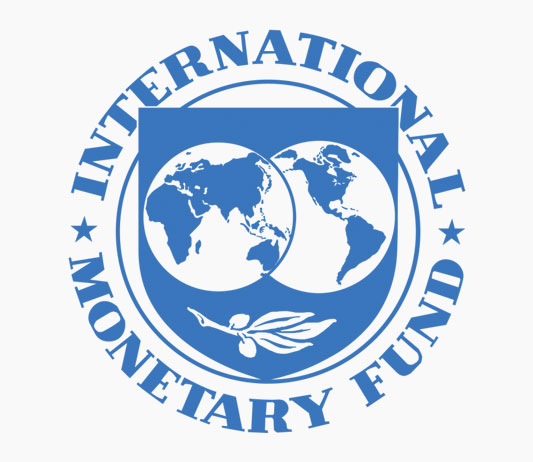- The Barbadian economy continues its recovery on the back of stronger tourism performance but improving public finances remains a critical challenge.
- Economic growth in 2016 is estimated to have been 1.6 percent and to have accelerated in the first quarter of 2017 to 2 percent.
- The IMF stands ready to assist the government of Barbados through continued policy dialogue and technical assistance.
At the invitation of the authorities, an International Monetary Fund (IMF) team led by Judith Gold visited Barbados from June 20–29 to review recent economic developments and discuss the 2017 budget. At the end of the visit, Ms. Gold issued the following statement:
“The Barbadian economy continues its recovery on the back of stronger tourism performance, but improving public finances remains a critical challenge. Economic growth in 2016 is estimated to have been 1.6 percent and to have accelerated in the first quarter of 2017 to 2 percent. The stronger economic performance has supported a reduction in the unemployment rate to 9.7 percent in 2016 from 11.3 percent in 2015. Inflation started to pick up in the second half of 2016 after deflation in 2015, and on a point-to-point basis reached 3.2 percent by end-December 2016 mainly due to higher food prices.
“The current account has further narrowed by 2 percentage points to 4.5 percent of GDP on the back of improved tourism receipts, a robust increase in exports, and low oil prices. Notwithstanding this improvement, international reserves fell to B$682 million by end-2016, about 2 months of imports. Delayed official loan disbursements and privatization, as well as lower private-sector inflows, were key drivers of this decline. Net International reserves remain relatively low.
“There was some progress in reducing the fiscal deficit in FY2016/17, which is estimated to have declined to 5.5 percent of GDP from 6.8 percent in FY2015/16. The majority of the adjustment was generated by lower government spending, while fiscal revenues held steady. Despite this progress, the large government financing requirements were a challenge, as banks reduced their sovereign exposure. As a result, the government had to increasingly resort to funding from the Central Bank of Barbados (CBB).
“Growth in 2017 is projected to slow to less than 1 percent, reflecting the fiscal consolidation efforts introduced in the FY2017/18 Budget. Inflation is expected to continue to accelerate to 6.7 percent by year end because of the increase in the National Social Responsibility Levy (NSRL) and other taxes and fees, but revert to more historical norm in 2018 and subsequent years. There are important downside risks related to the increase in domestic and global uncertainty, including the impact of the Brexit on the British pound.
“Continued fiscal discipline, with economic growth, are essential to securing Barbados’ future. They will be critical to bolster international reserves and support the currency peg. Only a substantial and a sustained reduction in the fiscal deficit, which will put the debt-to-GDP ratio on a solid downward path, will restore the country’s credit rating and attractiveness to investors.
“The May 30th budget accelerates the pace of adjustment. It seeks to address the fundamental imbalance between revenues and expenditures that has characterized Barbados’ public finances in the past decade, and to significantly reduce new funding requirements. The budget is primarily focused on raising revenues while shoring up international reserves, including through an increase in the NSRL—which mostly impacts imported goods—from 2 percent to 10 percent. The government also plans cuts in current expenditure, to complete ongoing privatization efforts, and to undertake new divestments. In addition, the government seeks to initiate a voluntary exchange of debt instruments with the National Insurance Scheme and the CBB to reduce the interest bill. If implemented as envisaged, the 2017 budget would lead to substantial gains toward improving public finances.
“Over the medium-term, further fiscal adjustment would be needed on the expenditure side to decisively reduce debt and debt service costs. Transfers to public enterprises of close to 8 percent on an annual basis represent the second largest expenditure item, after the wage bill, and about the same magnitude as the interest bill on the public debt. Both expenditure categories weigh heavily on public finances and critical reforms are needed over the to restore sustainability and confidence. Reduction in transfers to public enterprises must be supported by structural reforms to reduce SOEs’ operating costs, rationalize their programs, and raise their revenues. Consideration should also be given to divesting commercial SOEs that can be run more efficiently and profitably by the private sector. Other structural reform, especially those focused on improving the investment climate and fostering growth are also critical.
“The IMF stands ready to assist the Government of Barbados, including through continued policy dialogue and technical assistance. The team would like to thank the authorities, technical staff, representatives of civil society, and the private sector, for their open discussions and constructive dialogue.”
The mission met with Minister of Finance and Economic Affairs Christopher Sinckler, Minister of Industry, International Business, Commerce, and Small Business Development Donville Inniss. Acting Central Bank Governor Cleviston Haynes, the leader of the opposition Mia Mottley, senior government officials, and representatives of the private sector.





